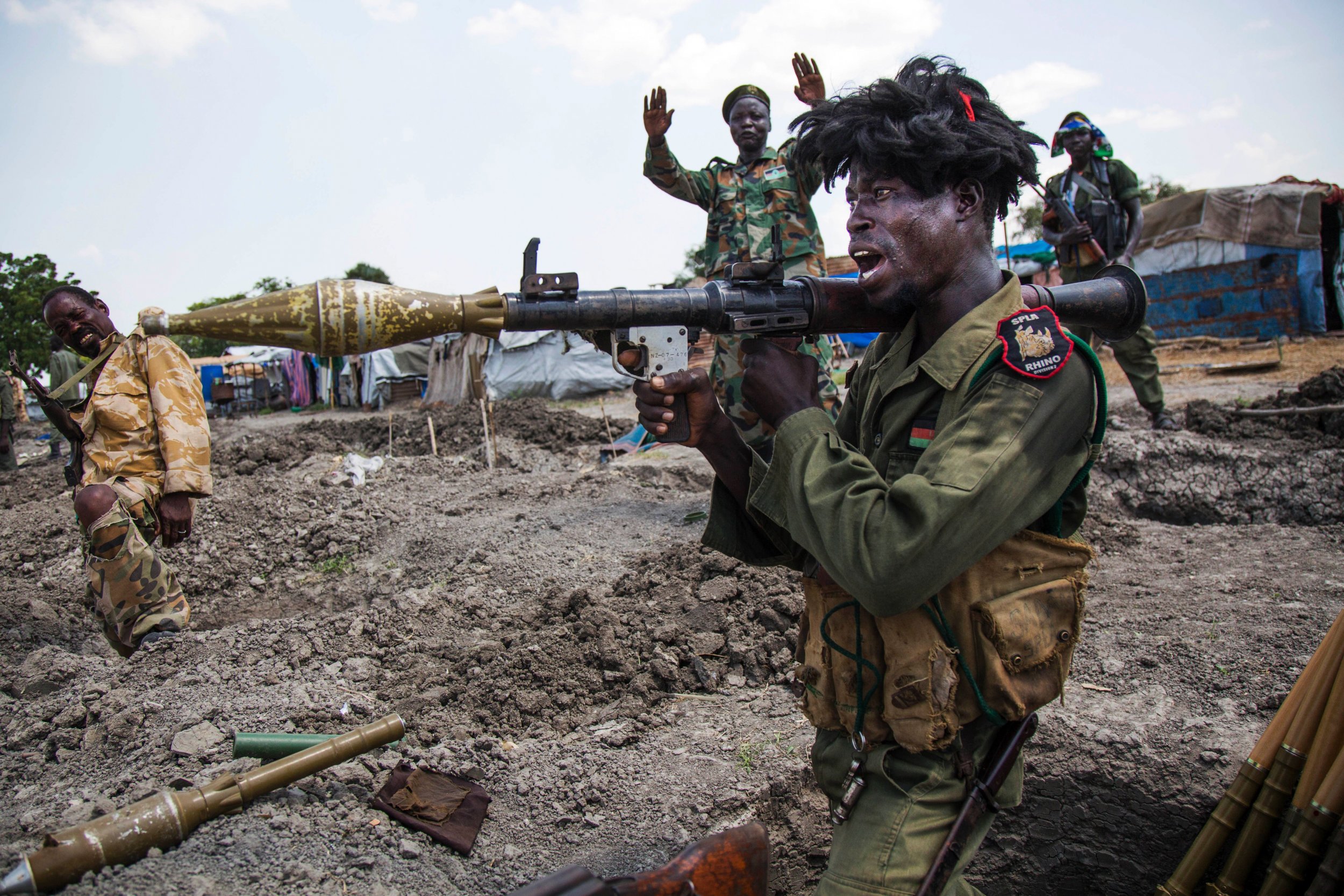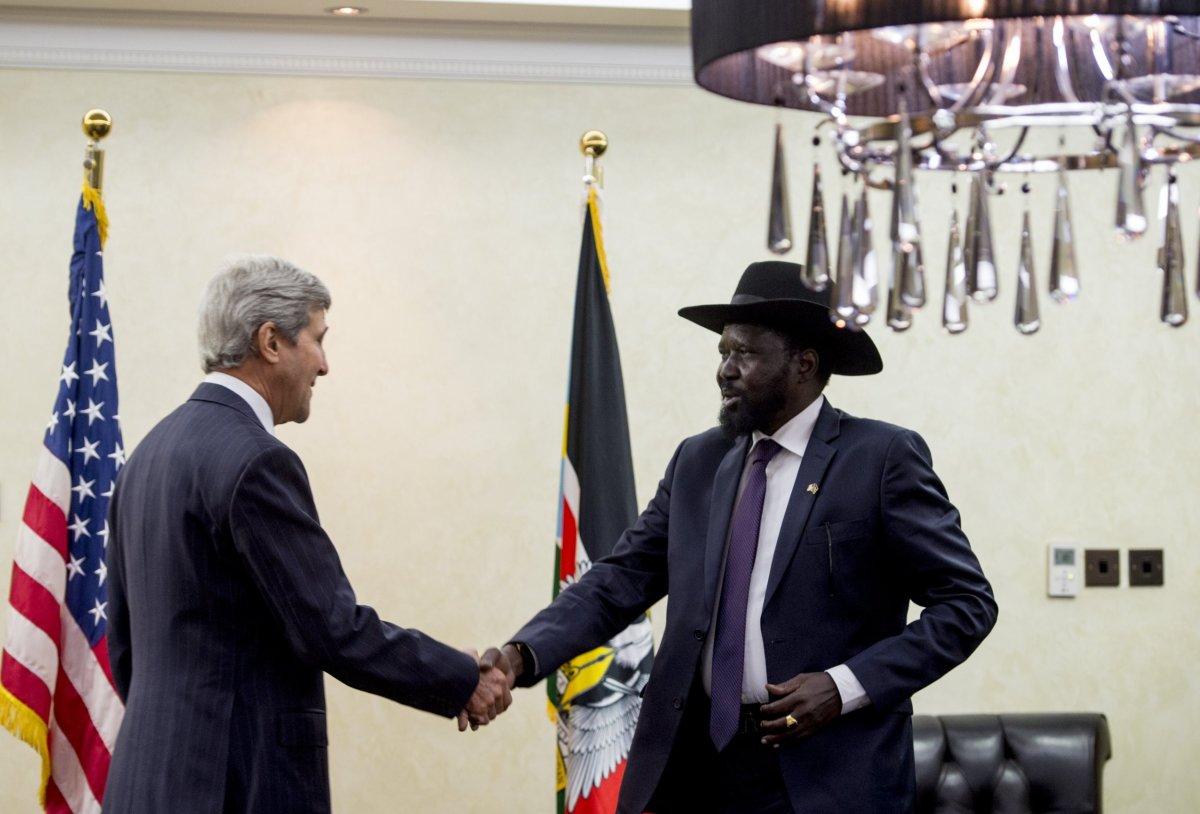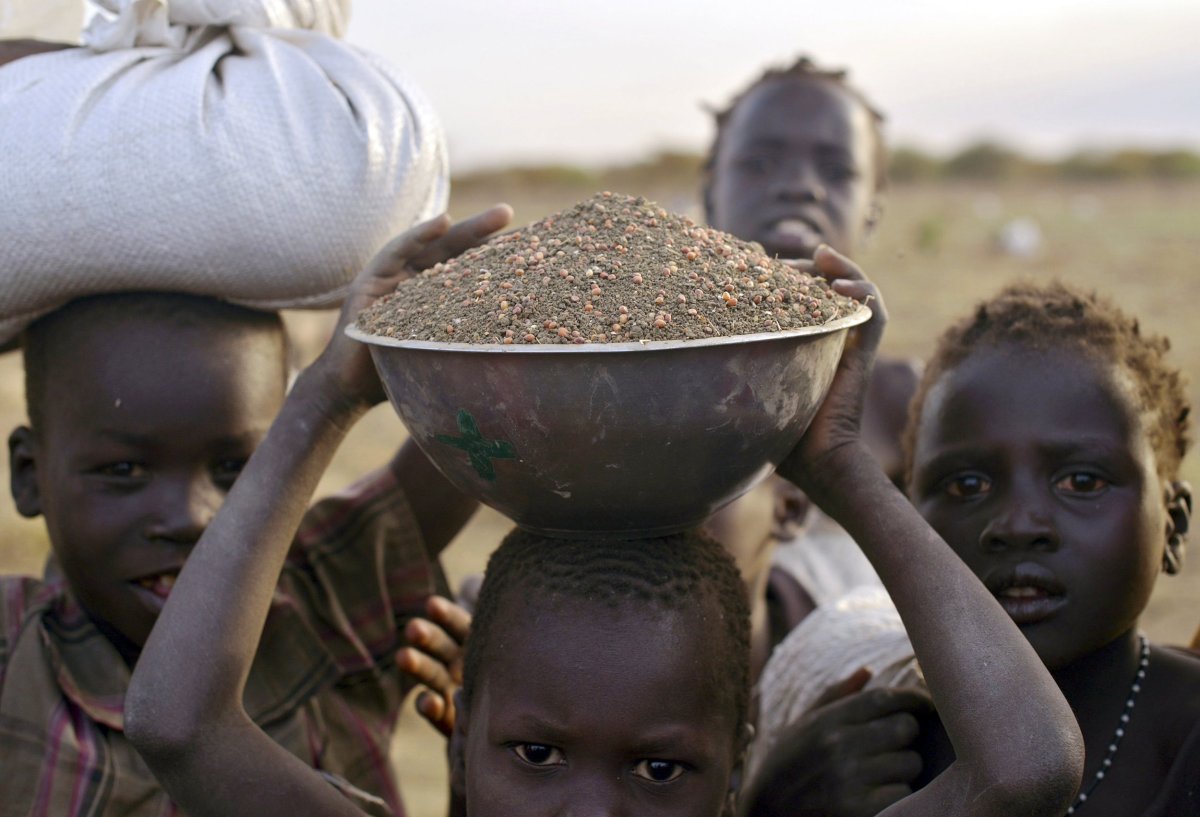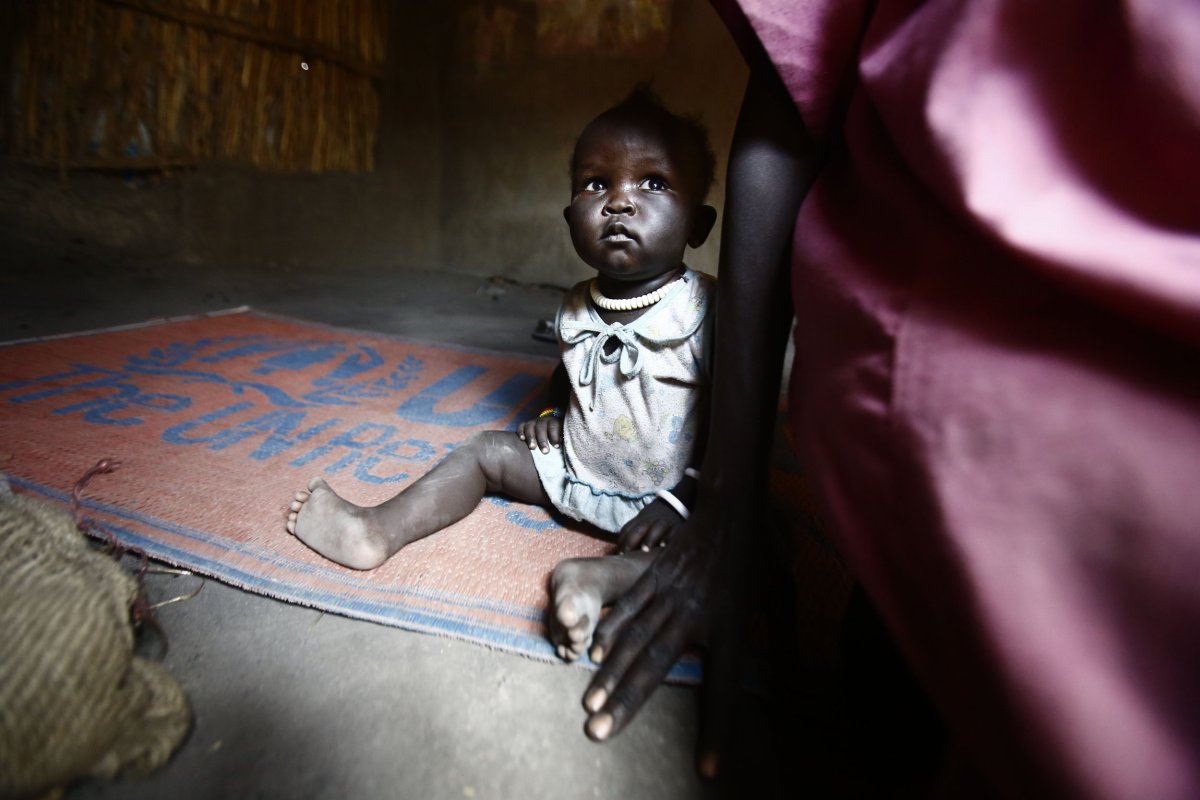
South Sudan is in crisis. Millions have been displaced by war, the threat of famine looms over the population and warring parties continue to carry out appalling atrocities against each other and civilians. The United States played a key role in South Sudan's independence and, following failed attempts at stopping the outbreak of war, must come to the aid of the world's youngest country.
Washington played a key role in encouraging both Sudan's government and the southern rebels, known as the Sudan People's Liberation Movement (SPLM), to sign a 2005 peace agreement ending decades of war. This was the Bush administration's major achievement in its Africa policy. The agreement enabled the people of what was then southern Sudan to vote in a referendum for their independence from Sudan in July 2011—which they duly did, leading to the creation of South Sudan—but also served U.S. efforts in combating terrorism in the region.
South Sudan descended into civil war in December 2013, just two years after winning its hard-fought independence. There are many reasons that led South Sudan to fall apart: lack of vision, absence of law and order, dictatorial tendencies among leaders, politicization of ethnicity, rampant corruption and others. No doubt, South Sudan is in dire need of an inclusive political mechanism to address its man-made human tragedy.
Read more: How China could benefit from Trump's uncertainty in Africa
The Obama administration was unsuccessful in devising an effective strategy to end the internal civil war and to shape South Sudan's political future after independence. It embraced the strategy of African solutions for African problems; the problem is that that strategy has failed to deliver.

The thinking in the U.S. was to encourage the Intergovernmental Authority on Development (IGAD), a regional body in East Africa, to convince the two warring parties—the government led by President Salva Kiir and the armed opposition headed by his former deputy Riek Machar—to join in a power sharing government as stipulated in a peace agreement signed by both sides in 2015. But the strategy excluded other political forces and provoked new armed rebellions around the country.
Instead of leading the implementation, the United States delegated to IGAD and the Joint Monitoring and Evaluation Commission (JMEC) to supervise the implementation of the peace agreement. But both the IGAD and the JMEC have utterly failed to ensure that the agreement ends the war, engenders economic, political and security reforms, and holds those who committed crimes against humanity accountable.
Since the collapse of the transitional government in July 2016, no one has been able to restore political stability in South Sudan. The 2015 peace agreement has been increasingly compromized by the government and competing regional and international interests. At the moment, there are no apparent efforts to address South Sudan's crisis with the right political transition and security arrangements to rescue its people from the plight of war and famine. The U.N., African Union, and the Troika—the U.S., U.K. and Norwegian governments—seem to have nothing to offer except lip service. The byproduct of the peace process and the subsequent collapse of the 2015 agreement is a crisis for which the former U.S. administration shares the blame.

South Sudan still matters to the U.S. on human rights and security grounds. Since December 2013, government armed forces have disintegrated into clusters of ethnic militias accustomed to a culture of ethnically-targeted killing and rape of vulnerable women and girls. The United States should fear a South Sudan fragmented along ethnic and regional enclaves as a potential haven for terrorists in the region. History has taught us that the collapse of authority and the absence of a functioning government in Somalia in the 1990s led to the emergence of Al-Shabab as an alternative actor to fill the political vacuum. Other rebel groups from Sudan, Ethiopia and the Democratic Republic of Congo could turn South Sudan into a refuge. The United States should be worried about the ability of South Sudan's government to restore law and order, to keep the country together, and to establish a viable inclusive government.
Furthermore, the spillover effects from the conflict in South Sudan will probably exacerbate conflicts in neighboring countries, in particular Sudan, Ethiopia, Uganda, and Congo. These countries not only share borders with South Sudan but also host similar ethnic groups with historical and political ties. There is also a possibility that hostilities will increase between different ethnic groups with ties across the borders.

The Trump administration has yet to issue a policy statement outlining its strategy for South Sudan. I echo the sentiment expressed by a group of U.S. senators in their letter urging the administration to lead a political process for South Sudan. But Trump and his team should avoid the shortcomings of the previous administration. It is not effective for the United States to view South Sudan's crisis solely through the prism of regional security. South Sudan's crisis is a political one and it requires a political solution. Washington urgently needs to appoint a high-level envoy with a credible mandate to convene an inclusive political process.
This political process should be geared toward forming an interim government tasked with ending the war, returning the displaced, holding those who committed crimes against humanity accountable and preparing the country for a national election. It should include not only the main warring parties but also the newly-formed opposition groups. This strategy should be enhanced by a robust multilateral diplomatic effort led by the United States to create a broad coalition of regional and international actors, including the United Nations and the African Union, to address the security and humanitarian catastrophe.
Of course, there is no quick fix when it comes to restoring peace in South Sudan. But the United States can create a new momentum to address South Sudan's political impasse not only by saving lives through delivering the supply of aid, but also creating an enabling political environment for long-term stability to prevent future conflict and the further loss of lives.
Amir Idris is a South Sudanese academic and professor and chair of Department of African and African American Studies at Fordham University, New York City.
Uncommon Knowledge
Newsweek is committed to challenging conventional wisdom and finding connections in the search for common ground.
Newsweek is committed to challenging conventional wisdom and finding connections in the search for common ground.
About the writer
To read how Newsweek uses AI as a newsroom tool, Click here.








